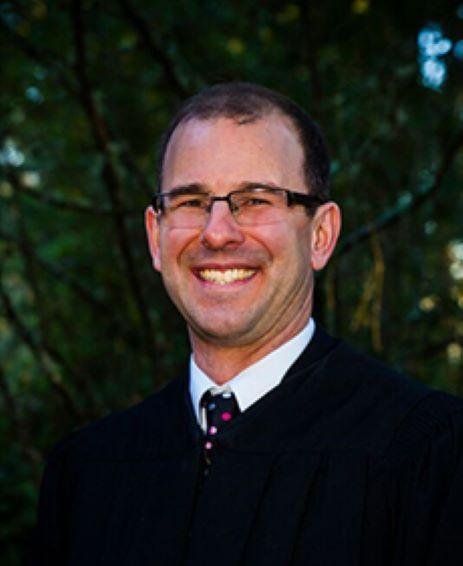Judge John Skinder on How Therapeutic Courts Transform Lives
Many tasks—whether for school, career, or life—seem to follow a set process from A to Z. But sometimes those steps don’t adapt to meet people’s real-world needs. That’s when a true paradigm shift is needed.
Judge John Skinder
Today’s therapeutic drug courts are built on a different philosophy. “It’s a recognition that we can do more together to rehabilitate the person—to help them become a good friend, partner, and employee again,” he explains. “Drug court is a more personalized, less formal approach aimed at the root problem. Creating courts directed at substance use disorder was a paradigm shift in the legal system.”
Judge John Skinder sees the Strophy Foundation’s work with local therapeutic courts as exactly that—a shift in how the judicial system supports people. Over the years, he’s witnessed how these courts improve outcomes and transform lives across the region by breaking away from the traditional, punishment-focused model.
Judge Skinder began his career as a deputy prosecuting attorney in Lewis County from 1997 to 2000, and later in Thurston County from 2000 to 2016, including work with the Lewis County drug task force. “Back then,” he recalls, “sentencing was so different—it was such a punishment model.”
Today’s therapeutic drug courts are built on a different philosophy. “It’s a recognition that we can do more together to rehabilitate the person—to help them become a good friend, partner, and employee again,” he explains. “Drug court is a more personalized, less formal approach aimed at the root problem. Creating courts directed at substance use disorder was a paradigm shift in the legal system.”
In the past, many clients dreaded court and even risked warrants by skipping appearances. But with the support of the Strophy Foundation and therapeutic courts, Judge Skinder sees participants now take pride in showing up—and in sharing their progress. “The Strophy Foundation plays such a huge role,” he says. “In Lewis County, we saw how Thurston County was a leader in drug court and in other therapeutic court models. Seeing how Strophy walks alongside participants has been powerful.”
His work in therapeutic courts has also shaped his perspective as a judicial officer. “So much of court is formal and traditional, with limited interactions,” he says. “In therapeutic court, it’s less formal, with much more direct contact and opportunities to learn about people’s lives and traumas. It’s a really good model and a paradigm shift that changes both participants and judicial officers.”
For many participants, struggles with drugs and alcohol began early and quickly derailed their lives, leaving them without jobs, licenses, or stability. Therapeutic courts require strict participation and accountability, which can feel overwhelming. Mistakes happen—but working through them and learning from them, Skinder believes, makes people stronger.
The Strophy Foundation supports this journey by offering practical life skills—like budgeting and credit repair—that are often overlooked but vital for reentry into the community.
Not everyone’s journey follows the same path. But thanks to the Strophy Foundation and dedicated leaders like Judge John Skinder, even the bumps in the road can be overcome—and lives can be restored—whatever happens between A and Z.

